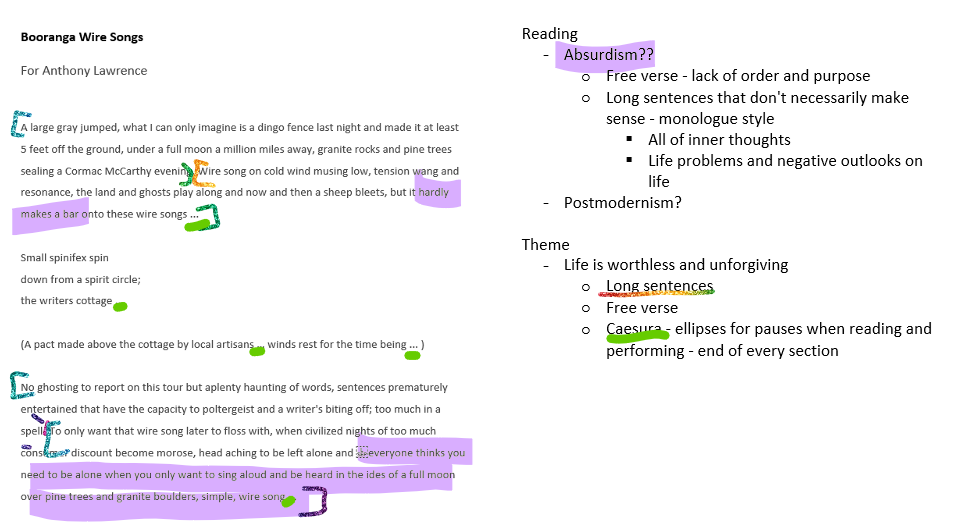




Note: Comments are in bold after the section
“Booranga Wire Songs” by Anthony Lawrence can be read as an critique on life’s worth through its representation of the negative inner thoughts that go through the minds of the modern society. The poem is a outpour of Lawrence’s thoughts and judgements on the state of his country and the people who dwell within it. Through the use of a free verse poem structure, and lengthy sentences, Lawrence explores life’s lack of worth and its unforgiving nature.
“Booranga Wire Songs” comments on life’s unforgiving nature, delving into its distorted events and mournful outlook. The poem is in free verse, and the angular shifts in the shape of the poem implies a lack of order, and the view that life is worthless, as opposed to the modernist viewpoint of a life onwards and upwards. The somber tone implied by the use of free verse is further reflected in the content in the poem, where “a sheep bleats, but it hardly makes a bar onto these wire songs…” The bleating of the sheep is a normal event in modern society, where agriculture plays a large part in the development of society. However, Lawrence undermines this as it “hardly makes a bar onto these wire songs,” implying they are unimportant, and that humans do not truly care about the issues they deem so important. Thus, it encourages audiences to consider the true nature of life and the flawed way society views it. Focus more on writer intent, not audience
Lawrence’s poem critiques modern society’s view that the purpose of life is about heading onwards and upwards, and instead, suggests that there is no worth in life. In the large paragraphs, long sentences where the content in the sentence are not related are used to portray the “inner monologue” of Lawrence. Monologues are often associated as an inward look at a character’s negative thoughts, which portray to audiences that Lawrence is unhappy with the state of the modern world, as portrayed by the random, depressing topics addressed in the sentences, such as “everyone thanks you need to be alone when you only want to sing aloud and be heard.” This quote is significant because it shows the lack of understanding between humans, where mutual understanding is important for progress in the modernist society. Therefore, this implies to audiences modernism is flawed and thus prompting audiences to believe that there is no purpose in life.